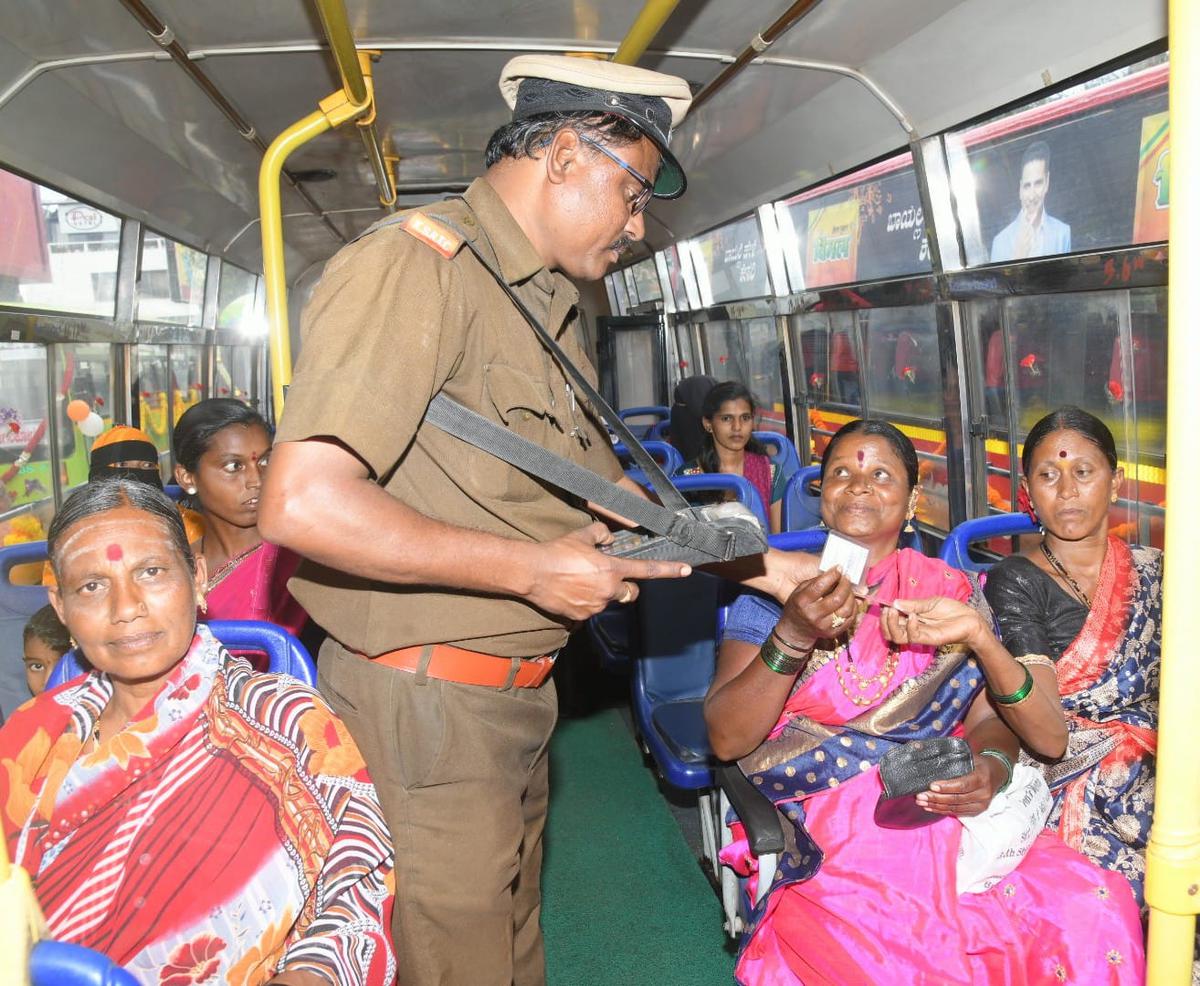Karnataka Makes Women’s Safety An Absolute Necessity By Introducing Free Bus Travel For Women.
Despite fears that the move will burden state budgets and current challenges with last-mile connection and safety, additional states are expected to follow suit as a political ploy and a shove for women to enter the workforce.

Karnataka is the most recent state to make public bus transportation free for women. This follows similar recent moves by Delhi, Punjab, and Tamil Nadu. On the surface, it appears to be a positive step towards empowering ladies by making transportation cheaper. At a time when businesses are eager to hire more female candidates, governmental actions to increase mobility can encourage them to enter the workforce. Furthermore, bus travel has become safer, with more ladies using free bus transportation.

As per the information from the New York State Energy Research and Development Authority (NYSERDA) data, the combination of safety concerns and providing child and dependent care causes female candidates to spend much more money on transport than males — a ‘pink tax’ on mobility. As a result, free bus transit for ladies decreases the impact of this pink mobility fee.
Are there any improvements where reducing the ‘pink tax’ increased female passengers on the road?
It’s no surprise that female commuters embrace such public policy approaches. According to Delhi and Tamil Nadu studies, the ‘free bus for women‘ programme is popular. Since the scheme’s inception in 2019, 100 crore ‘pink tickets’ have supposedly been issued in Delhi. According to data from Tamil Nadu, average female ridership increased from 40% on regular days to 60% following the initiative launched in 2021.
Despite fears that the move will burden state budgets and current challenges with last-mile connection and safety, additional states are expected to follow suit as a political ploy and a shove for women to enter the workforce. In addition, India, which has one of the lowest female labour-force participation rates among big countries, is the only country where certain states provide free public transit, particularly to females.
Is the method required only for women or for everyone else?
Countries like Luxembourg and Malta and places such as Tallinn, Estonia, Avesta, Sweden, and Chambly, Canada, have implemented zero-fee public transit for everybody, not just women. As a result of more individuals preferring public transit over driving, there is less traffic. Given the substantial financial drag on most Indian governments, universal free public transit may remain a challenging aim to attain. However, doing it for women is a step in the right direction. But, attempts should be made in future to employ these policies for every gender, hence ensuring gender equality as well.

Affordable/free public transit is only one part of increasing women’s mobility and visibility in public areas. Other critical considerations are accessibility, frequency, safety, and coverage. If public transit is considered hazardous or overcrowded, it is doubtful that all female passengers will utilise it, as some would prefer to pay to go securely.
Caroline Criado Perez’s book ‘Invisible Women: Exposing Data Bias in a World Designed for Men’ identifies a ‘male bias’ in transport planning. Travel for paid jobs takes precedence over trips for unpaid care labour.
Women often walk more, drive less, and make more daily journeys than males. According to her study, one of the most prominent reasons women do not use public transit is fear of crime. Peak travel hours are often peak times for sexual harassment. Bus shelters can be made transparent for enhanced visibility, and lighting can be increased to make bus waiting safer for women. Thus, the emphasis should not be only on providing free bus transportation to women.

Conclusion.
However, while it appears that attempts are being made to ensure women’s safety, any free public service frequently deteriorates in quality when its upkeep is ignored. Instead, The political will should focus on constructing total transportation with women’s safety and mobility demands in mind. This will prove to be a genuine, long-term, and all-encompassing ‘pink incentive’ for mobility.
Proofread & Published By Naveenika Chauhan




